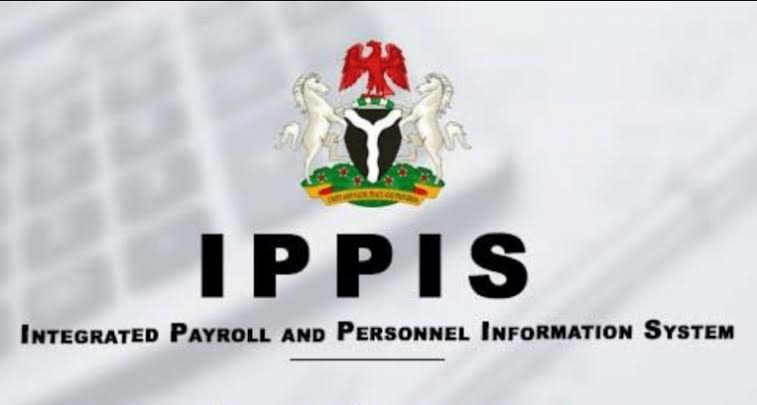- Say development ‘ll bring universities back on track
- Address punishment meted out on our members – ASUU
- Why FG took decision, by Education Minister
The Academic Staff Union of Universities has commended the Federal Government for removing universities and other tertiary institutions from the Integrated Personnel Payroll Information System payment platform.
The Federal Government on Wednesday approved the exemption of universities, polytechnics, colleges of education and other tertiary institutions of learning from the IPPIS.
It said, henceforth, remunerations to staff members of these institutions would no longer flow through the platform.
Reacting in an interview with The Point, the President of ASUU, Emmanuel Osodeke, applauded the government for removing universities from the platform.
Osodeke said the development would bring universities back on track, adding that the institutions had lost their glory due to the payment platform.
He also called on the government to resolve all other pending issues that were raised in order to have a university system that would be free from incessant strike actions.
Osodeke also called on President Bola Tinubu to address the issue of punishment meted out on its members while calling for the right things to be done.
He said, “If that is correct, it is a good step in the right direction. We commend the administration for that. That’s what we’re talking about. If that’s correct, we are now coming up as universities gradually.
“This was one of the major reasons we were on strike which was not attended to, for which our salaries were held.”
Osodeke added, “We are also saying that while correcting those issues, the government should also correct the issue of our members who were punished for asking for the correct things. That is the next step to talk about.
“On this one, this is a good development. We commend the government for listening to our concerns after three years.”
Also, the National Association of Nigerian Students on Wednesday commended the Federal Government for excluding universities, polytechnics and colleges of education from the IPPIS platform.
The association, in a statement made available in Abuja and signed by the NANS Senate President, Akinteye Babatunde, said the exemption came in as a significant relief to the staff of the tertiary education sub-sector.
The statement reads, “This exemption serves as a significant relief for our universities and tertiary institutions, addressing the persistent concerns raised by academic authorities. The responsiveness of President Bola Tinubu to the pleas of the educational sector underscores a commitment to fostering a conducive environment for learning and academic excellence.
“We commend the government’s understanding of the intricacies involved and its willingness to engage in dialogue to arrive at a solution beneficial to all stakeholders.
“As we celebrate this positive development, NANS calls upon our esteemed lecturers to embrace this opportunity by being proactive in fulfilling their duties. The heart of our nation’s progress lies in the education imparted within these institutions, and the dedication of lecturers is pivotal to shaping the future of our country.
“NANS encourages a renewed sense of collaboration between the government and educators to ensure the continuous improvement of our educational system. Let us collectively work towards creating an atmosphere conducive to academic growth, research, and innovation.
“Once again, we express our gratitude to the Federal Government for heeding the pleas and look forward to continued collaboration with the government to address challenges and enhance the quality of education in Nigeria.”
The Minister of the Information and National Orientation, Mohammed Idris, disclosed the latest development to State House Correspondents after this week’s Federal Executive Council meeting at the State House, Abuja.
According to Idris, the Federal Government reasoned that the IPPIS does not afford tertiary institutions the freedom to run their affairs.
He explained, “Today, the universities and other tertiary institutions have gotten a very big relief from the Integrated Personnel Payroll and Information System. You will recall that the university authorities and others have been clamouring for exempting the universities and other tertiary institutions from this system.
“Today, the Council has graciously approved that. What that means is that going forward, the universities, as the Honorable Minister of Education has said and other tertiary institutions, the polytechnics and colleges of education will be taken off the IPPIS.
“What that means in simple language is that the university authorities and other tertiary institutions will now pay their personnel from their own end instead of relying on the IPPIS.”
The Minister of Education, Prof. Tahir Mamman, who explained the rationale for the Council’s decision, said the goal was to allow for the efficient running of public educational institutions nationwide.
He argued that Wednesday’s move was not connected to the integrity of IPPIS, the University Transparency and Accountability Solution, or other similar systems advocated by various bodies.
Mamman said, “Simply, the president and the Council are just concerned about the efficiency of management of the universities, and so it has nothing to do with integrity or platform options.
“The president cannot understand why Vice Chancellors should be leaving their duty post and running to Abuja to get staff enlisted on IPPIS when they get recruited.
“The basic concern is that universities are governed by laws. And those laws give them autonomy in certain respects and most respects and the IPPIS has sort of eroded that autonomy granted universities are in accordance with their act.”
In October 2006, the FG introduced the IPPIS as one of its reform initiatives for the effective storage of personnel records, saying the move would improve transparency and accountability.
IPPIS, which was expanded to cover all ministries, departments and agencies that draw personnel costs from the Consolidated Revenue Fund, has been touted by the government as a means of saving billions of Naira and improving transparency in salary payments.
However, the Academic Staff Union of Universities, the umbrella body for lecturers in Nigerian universities, resisted the implementation of IPPIS within universities, arguing that it undermines university autonomy and does not accommodate the unique nature of academic work.
ASUU has instead proposed an alternative system called the University Transparency and Accountability Solution, which they believe better addresses the peculiarities of the university system, such as sabbatical leave, adjunct engagements and part-time contracts.
ASUU and other academic unions argue that IPPIS centralisation impedes the governing councils’ ability to effectively manage personnel and payroll, affecting strategic planning and the autonomy of universities.
This has led to tensions and a protracted standoff, with ASUU continuing to push for the adoption of UTAS over IPPIS, which they see as a foreign-imposed system unsuitable for the Nigerian tertiary education sector.
Despite the government’s attempts to enforce IPPIS, ASUU has held firm, leading to strikes and disruptions in academic activities, including an eight-month hiatus in educational activities that ended in 2022.

